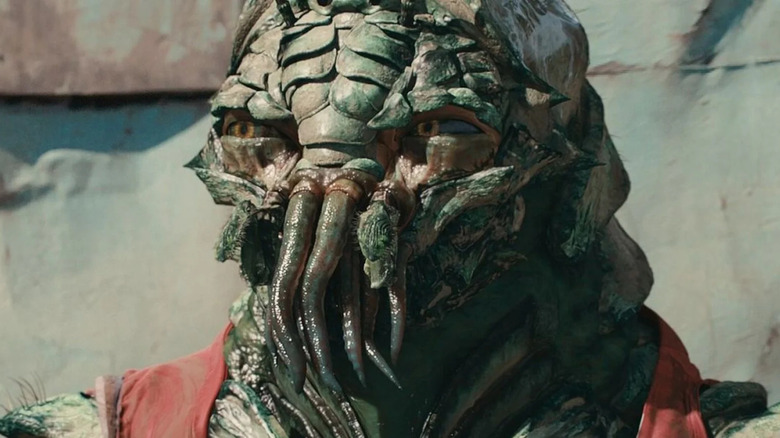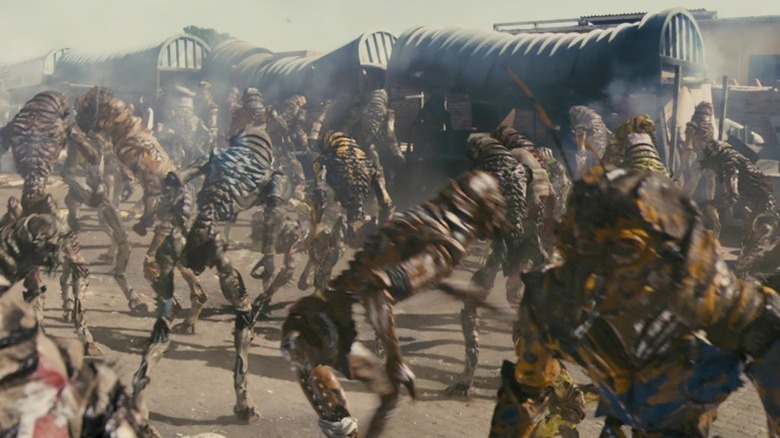How District 9 Created A City Of Aliens With Only A Few Actors
"District 9" was a dynamite debut for director Neill Blomkamp, whose scrappy independent science fiction film about the mistreatment of anthropomorphic bug aliens earned him the glowing praise of critics, cinephiles, and the Academy of Motion Picture Arts and Sciences. In many ways, the film's success is a product of a shifting time in special effects, when access to CGI technology became more accessible to a wider crowd of filmmakers. The film underwent many changes in its journey from conception to VFX completion, but with the help of a few trusty motion capture stand-ins, Blomkamp was able to stretch the limits of his modest $30 million budget.
Originally, the "prawns," as the film's characters derisively label the aliens, were planned to be actors in suits with CG-supplemented effects, according to Weta Workshop artist David Meng. The switch to entirely CG alien models wasn't a huge leap for Blomkamp, who was used to working with digital effects due to his extensive history as a 3D animator. The real headache came when seasoned VFX company Weta Workshop, which had previously gained recognition for its work on "The Lord of the Rings" trilogy, transferred almost all of its manpower over to designing "Avatar." Instead, Blomkamp turned to the lesser-known Vancouver studio Image Engine.
A handful of Prawns
Blomkamp and Image Engine were both presented with the challenge of working not only within budgetary constraints, but also an odd time frame. Unlike in most other shoots where motion capture cameras travel to the film set, the special effects artists worked on the mocap effects after the shoot had already concluded in Johannesburg. Image Engine, working with the mocap studio Animatrik Film Design, instead replicated the image of mocap actors Jason Koepp, Donavon Stinson, and Peter Benson in post-production.
The actors had to shoot five days worth of additional scenes in Vancouver, but the effects team's innovation in adding life to pre-existing footage is nothing short of impressive. The design of the prawns strategically emphasized their big eyes and minimized human-like mouth movements due to their tentacled mandibles, allowing them to look both "gross and unpleasant" while also "able to emote warm-blooded emotions," as Meng describes it. That combination of unsettling and sympathetic is what makes the creature design so notable, and why it was so important for the effects artists to make sure that only a few mocap models could bring an entire alien community to a South African township.

